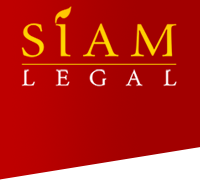Proposed Debt Collection Act
Just mid last year, the National Legislative Assembly of Thailand voted to accept, in principle, the terms of the Debt Collection Act. Drawing inspiration from analogous laws in the United States and Australia, this new legislation will act as a consumer protection law protecting consumers from abusive practices on the part of debt collectors. The important points of this law are that it will require registration of those who engage in the business of debt collection and it will establish a commission with oversight over debt collection practices. A few other salient points of the proposed law are as follows:
- A “debt collector” shall be generally defined to mean any juristic person who extends credit in the ordinary course of business or anyone authorized by such person. It shall also include anyone engaged in the business of debt collection. Anyone who engages in the business of debt collection, that is anyone who is hired to collect debts in the ordinary course of business, must be registered with the Fiscal Policy Office and pay a fee based on government regulations.
- Debt collectors are prohibited from contacting third-parties, unless that third-party was specifically designated by the debtor. However, debt collectors are allowed to contact third-parties only to inquire as to where a debtor may be contacted. Debt collectors are prohibited from revealing to the third-party that the purpose is for debt collection.
- Debt collectors shall only contact debtors at the location specified by the debtor. Furthermore, debtors shall only contact debtors during the hours of 09:00 to 20:00. The debt collector must inform the debtor of his or her name, the name of his or her office, the name of the creditor, and the amount of the debt. If the debtor pays the debt to the debt collector, it shall be considered a lawful payment of debt.
- Debt collectors are prohibited from using threats, violence, insulting language, disclosing knowledge of the debt to third-parties, or contacting the debtor through post cards. Debt collectors are prohibited from using falsehoods, such as leading the debtor to believe that the debt collection is an act by a court, a government official, or an attorney-at-law. Debt collectors are also prohibited from using methods that are unjust, such as charging an interest rate greater than that specified by law or by persuading the debtor to sign a check even though the debt collectors are aware that the debtor is unable to pay.
The proposed law is expected to have complex legal ramifications. Businesses in Thailand are advised to consult with competent legal counsel in order to understand how the law might affect them.
Category: Business in Thailand, Civil and Commercial Law
About the Author (Author Profile)
Siam Legal is an international law firm with experienced lawyers, attorneys, and solicitors both in Thailand law and international law. This Thailand law firm offers comprehensive legal services in Thailand to both local and foreign clients for Litigation such as civil & criminal cases, labor disputes, commercial cases, divorce, adoption, extradition, fraud, and drug cases. Other legal expertise of the law firm varied in cases involving corporate law such as company registration & Thailand BOI, family law, property law, and private investigation.











